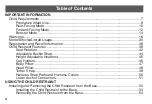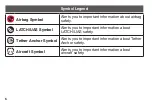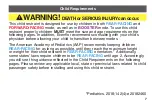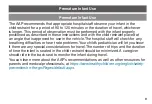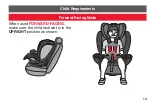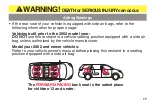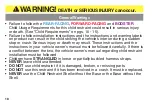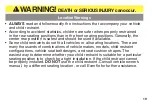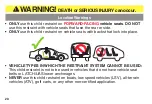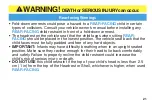
8
Before using this child restraint for preterm or low birth weight infants, ensure
the Child Requirements are met and follow the guidelines in this section.
According to NHTSA, a properly installed child restraint reduces the risk of death
by over 70% for infants involved in crashes. Federal Motor Vehicle Safety Standard
(FMVSS) 213 establishes design and dynamic performance requirements for
child restraint systems. However, the standard has no minimum weight limit and
does not address the special medical needs of preterm or low birth weight infants.
To ensure that preterm and low birth weight infants are transported safely, the
guidelines published by the American Academy of Pediatrics (AAP) in Pediatrics
2009;123:1424–1429 (reaffirmed June 2018) must be followed.
Preterm and low birth weight infants are at additional risk of breathing difficulties and
heart problems when placed in a child restraint. Evenflo requires that the evaluation
recommended by the AAP be conducted for all infants born earlier than 37 weeks
and all newborn infants who weigh less than 2.26 kg (5 lbs) at birth before their
first car trip to check for breathing difficulties or heart rate problems when traveling
in a
REAR-FACING
child restraint. Newborn infants should
NEVER
travel in a
FORWARD-FACING
child restraint.
Premature Infant Use
Premature Infant Use




